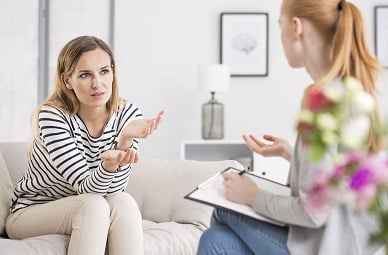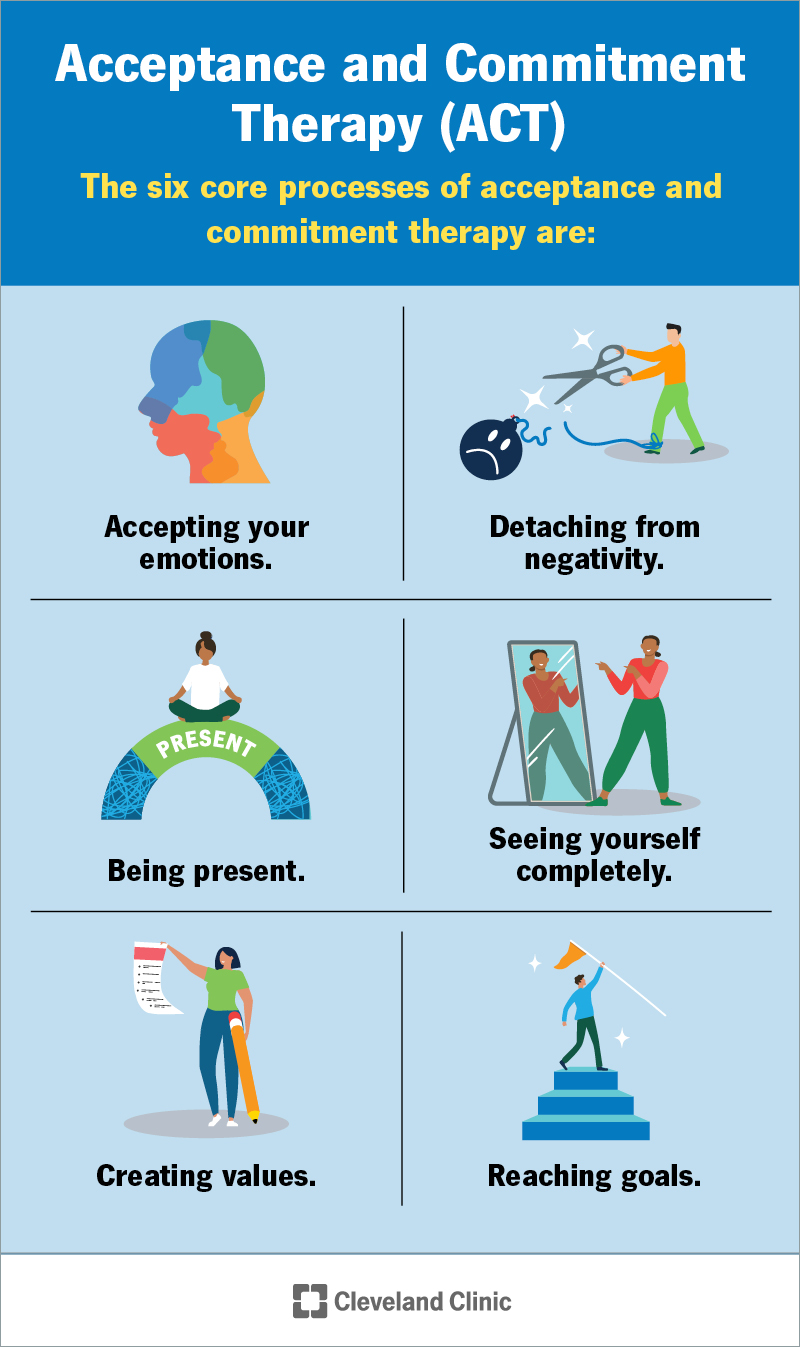Supportive and experienced therapy for anxiety designed for you
Exploring Different Methods in Coaching for Anxiety Condition for Enduring Change
When tackling anxiousness conditions, it's vital to check out a range of counseling approaches. Each approach uses unique insights and tools to aid you manage your signs properly. You might find that combining strategies can generate the very best outcomes. However, recognizing the subtleties of these approaches is vital to promoting lasting adjustment. Suppose the ideal mix could release a brand-new level of psychological wellness for you?
Understanding Stress And Anxiety Conditions: A Brief Introduction
Stress and anxiety problems, which affect numerous people worldwide, can considerably affect life. You might experience frustrating feelings of fear or stress that seem uncontrollable. These sensations can cause physical signs and symptoms like an auto racing heart, sweating, and even wooziness. Typical kinds of anxiety disorders consist of generalised anxiousness problem, panic attack, and social anxiousness condition. Each has one-of-a-kind indicators, however they all share a propensity to disrupt your regular and relationships.Understanding the origin creates of your anxiousness is essential. It might stem from genes, brain chemistry, or life experiences. Recognizing your triggers can assist you handle your feedbacks much better. It is essential to keep in mind that you're not alone in this struggle. Many individuals deal with comparable challenges, and seeking aid is a strong step towards sensation better. By discovering anxiety disorders, you're currently on the course to understanding and managing your problem better.
Cognitive-Behavioral Treatment: Testing Adverse Idea Patterns

Determining Unfavorable Idea Triggers
When you encounter minutes of distress, identifying the specific triggers behind your negative ideas can be essential in taking care of stress and anxiety. Beginning by focusing on circumstances that provoke sensations of worry or anxiety. Is it a congested area, an approaching target date, or a conversation with certain people? Write these circumstances in a journal. This will help you determine patterns in your reasoning. Notice physical experiences that accompany your adverse ideas, like an auto racing heart or rigidity in your upper body. By determining these triggers, you obtain understanding into what's sustaining your stress and anxiety. Understanding these links is the very first action in challenging those thoughts and ultimately gaining back control over your psychological responses.

Changing Ideas With Positives
Challenging unfavorable idea patterns is an essential step in changing your state of mind and lowering stress and anxiety. You might often discover on your own trapped in cycles of insecurity or catastrophic reasoning. Instead of allowing these ideas determine your sensations, technique changing them with positive affirmations or practical choices. When you assume, "I can not manage this," move it to, "I can handle obstacles one action at a time." This basic modification can considerably impact your emotion. On a regular basis recognizing and responding to these unfavorable ideas helps produce a healthier interior discussion. Bear in mind, it takes some time and effort, but constantly practicing this strategy can lead to enduring modification, encouraging you to encounter stress and anxiety with restored confidence and resilience
Building Coping Techniques With Each Other
Replacing unfavorable thoughts is only the beginning of managing anxiety effectively. To produce long lasting modification, you need to construct coping methods that encourage you. Cognitive-Behavioral Treatment (CBT) aids you identify and test those unhelpful idea patterns. With each other, you and your therapist can explore exactly how these thoughts impact your feelings and behaviors.Start by developing practical strategies, like journaling or mindfulness exercises, that permit you to face anxiousness head-on. When you encounter your fears slowly, you'll learn to respond in a different way.

Mindfulness and Acceptance-Based Approaches: Cultivating Present-Moment Understanding
As you navigate the complexities of anxiousness, including mindfulness and acceptance-based strategies can significantly improve your capability to grow present-moment understanding. By concentrating on the present moment, you'll locate that you can observe your ideas and sensations without judgment. This practice aids you recognize your anxiousness without feeling overwhelmed by it.Engaging in mindfulness workouts, such as deep breathing, body scans, or directed reflections, allows you to ground yourself in your present experience. Acceptance-based approaches motivate you to accept your feelings rather than fight against them. They shed their power over you.Incorporating these practices into your daily regimen can transform how you respond to anxiousness when you approve your sensations. You'll create durability and discover to browse difficult circumstances with higher simplicity. Inevitably, growing present-moment recognition lays the foundation for lasting adjustment, empowering you to lead an extra meeting life.
Direct Exposure Therapy: Confronting Worries Progressively
Direct exposure treatment helps you face your concerns in a progressive way, making it less overwhelming. You'll learn strategies to face anxiety-provoking scenarios step by step, while also constructing coping approaches to manage your reactions. This method equips you to take control and minimize anxiety over time.
Progressive Direct Exposure Methods
When facing anxiousness, gradually confronting your concerns can be a powerful method to restore control. This technique, called gradual exposure, entails gradually exposing yourself to the situations or things that activate your anxiousness. Start with less daunting situations and slowly work your means as much as more difficult ones. For example, if you're worried of public talking, you could start by speaking before a mirror, then advance to sharing ideas with a friend, and at some point deal with a small team. Each action helps desensitize you to the concern, developing your confidence with time. Bear in mind, it's necessary to rate yourself and commemorate little triumphes as you relocate through this procedure, enhancing your ability to take care of anxiousness properly.
Building Coping Methods
Building efficient coping methods is vital for taking care of anxiety, especially as you confront your anxieties progressively. One effective technique is exposure treatment, where you begin by encountering your fears in a regulated fashion. Start with much less intimidating scenarios and gradually work your way approximately even more challenging situations. This steady exposure aids desensitize you to anxiousness sets off, making them less overwhelming.Incorporate relaxation techniques, such as deep breathing or mindfulness, to soothe your mind throughout direct exposure. Track your progress, celebrating tiny victories along the road to read more boost your self-confidence. Keep in mind, it's all right to take your time; the goal isn't perfection yet consistent improvement. By constructing these approaches, you'll encourage yourself to navigate anxiety and accept life extra fully.
Psychodynamic Therapy: Revealing Origin of Anxiety
Psychodynamic treatment explores the unconscious mind, revealing the source of your anxiousness - Counseling services for anxiety. By analyzing your thoughts, sensations, and previous experiences, this strategy helps you uncover underlying disputes and unsolved concerns that may add to your current anxiety. You'll deal with a therapist to examine childhood experiences, partnerships, and emotional patterns that shape your reactions today.As you obtain insight right into these deeper layers of your mind, you'll start to recognize how previous events influence your present actions. This understanding can result in catharsis, permitting you to process feelings you might have suppressed.Through the therapeutic partnership, you can additionally determine defense reaction that might have developed with time, supplying a more clear path to transform. Eventually, psychodynamic therapy outfits you with the devices to address your anxiety at its core, promoting long lasting transformation in your psychological well-being
Integrative and Holistic Approaches: Integrating Techniques for Greater Effectiveness
Incorporating different healing strategies can improve your journey toward taking care of stress and anxiety better. By incorporating aspects from cognitive-behavioral therapy, mindfulness techniques, and holistic methods, you can produce a customized strategy that resolves your one-of-a-kind demands. For example, you may make use of cognitive-behavioral techniques to test adverse thought patterns while incorporating mindfulness workouts to ground on your own in the present moment.Additionally, discovering all natural methods such as yoga or reflection can promote leisure and lower anxiety symptoms. This blend allows you to establish greater self-awareness and resilience.Experimenting with these diverse methods can assist you discover what resonates most with you. Remember, it has to do with finding a synergy that functions, instead of staying with a solitary approach. This integrative approach not only provides prompt relief however additionally fosters long-lasting abilities for handling anxiety, empowering you to reclaim control over your life.
The Role of Support Equipments: Structure Strength Via Link
While it may appear that taking care of anxiousness is a solitary journey, having a strong support group can play an important role in your durability. Bordering on your own with empathetic good friends, family, or assistance groups develops a secure room where you can honestly share your experiences and sensations. When you connect with others, you remind yourself that you're not alone in this struggle.These partnerships offer encouragement and can supply practical coping approaches that have actually benefited others. It's likewise a possibility to gain perspective; buddies can aid you see situations in a different way, minimizing feelings of isolation.Moreover, psychological support cultivates a sense of belonging, which can substantially relieve anxiousness signs. By leaning on your assistance system, you can build resilience and take on difficulties better. Keep in mind, getting to out for assistance signifies strength, and it can make all the distinction in your trip towards taking care of anxiety.
Often Asked Questions
What Are the Usual Signs And Symptoms of Stress And Anxiety Problems?
You could experience uneasyness, exhaustion, difficulty focusing, impatience, muscle mass stress, and rest disturbances. Physical symptoms can include quick heart beat, sweating, and trembling. Recognizing these indications early can assist you seek suitable support and therapy.

For How Long Does Therapy Normally Last for Anxiousness Disorders?
Therapy for anxiety disorders commonly lasts anywhere from a couple of weeks to several months. It actually depends upon your individual demands, progress, and the strategies your therapist utilizes to assist you manage your anxiety properly.
Can Medication Be Made Use Of Alongside Treatment for Anxiety?
Yes, medicine can definitely be made use of along with treatment for anxiousness. Integrating both approaches usually boosts therapy performance, assisting you manage signs and symptoms while discovering underlying concerns through therapy. Always consult your doctor for tailored advice.
Are There Self-Help Techniques for Handling Stress And Anxiety?
Yes, there are several self-help techniques for handling anxiety. You can practice mindfulness, participate in regular workout, keep a well balanced diet regimen, develop a routine, and use deep breathing strategies to help in reducing stress and anxiety signs and symptoms effectively.
How Do I Know if I Required Expert Help for Anxiety?
You should take into consideration looking for professional aid for stress and anxiety if it interrupts day-to-day live, causes significant distress, or if self-help strategies aren't functioning. Trust fund your instincts; connecting can bring about better coping abilities and assistance. Typical kinds of anxiousness disorders include generalised stress and anxiety problem, panic condition, and social anxiousness disorder. When you experience minutes of distress, recognizing the specific triggers behind your adverse ideas can be essential in handling anxiety. Replacing negative ideas is only the start of handling anxiousness efficiently. By analyzing your thoughts, feelings, and past experiences, this method helps you uncover underlying conflicts and unresolved issues that may contribute to your current anxiety. It's additionally a possibility to obtain viewpoint; pals can help you see scenarios differently, reducing feelings of isolation (Counseling services for anxiety).Moreover, psychological assistance fosters a feeling of belonging, which can greatly reduce anxiousness symptoms